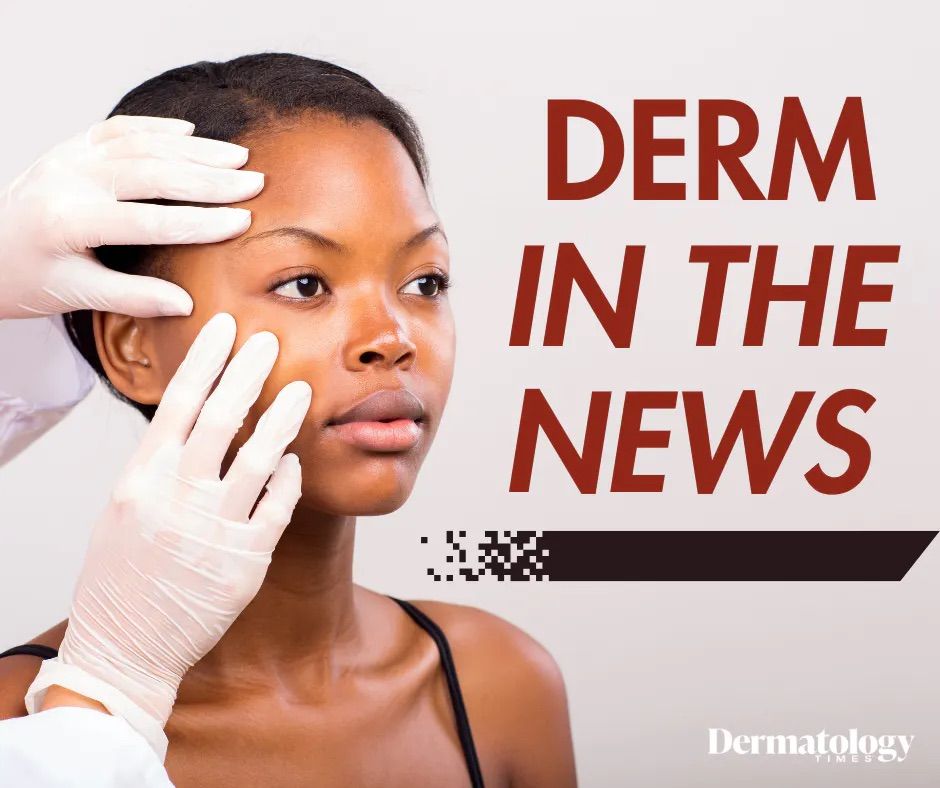Patient-Forward Rundown
Top headlines from this week to share with your patients:
News
Article
Author(s):
Keep up with the latest headlines in dermatology from the past week, including US sunscreen versus global regulations, all-time high melanoma rates in the UK, and more.

American sunscreen options are limited compared to those in other countries due to a 1938 law classifying sunscreen as a drug, necessitating animal testing. This law restricts the availability of foreign brands in the US, leading to fewer choices and potentially less effective protection against UVA rays, according to the Environmental Working Group. Robert Kirsner, MD, PhD, from the University of Miami advocates for the availability of European sunscreens in the U.S. for better patient options. The FDA maintains that it must ensure sunscreens are safe for long-term use.
Cancer Research UK (CRUK) is urging people to increase sun protection as melanoma skin cancer cases in the UK are projected to hit a record 20,800 this year, up from an average of 19,300 annually between 2020 and 2022. Melanoma rates increased by nearly 30% from 2009 to 2019, rising from 21 to 28 cases per 100,000 people. The increase in melanoma cases spans all age groups, with the most significant rise among those over 80, where diagnoses climbed from 61 to 96 cases per 100,000 over a decade. There has also been a slight rise in adults aged 25 to 49, from 14 to 15 per 100,000 people in the same period.
Top headlines from this week to share with your patients:
Johnson & Johnson (J&J) has agreed to acquire the rights to an experimental eczema treatment from Numab Therapeutics for approximately $1.25 billion. This follows J&J’s $850 million acquisition of Proteologix earlier in the month, also focused on eczema, which affects 30 million people annually in the US. J&J is purchasing a unit of Numab, which is supported by Novo Nordisk's parent company, to gain access to NM26, an experimental treatment for atopic dermatitis. NM26, which recently completed early-stage trials, is a bi-specific antibody targeting 2 disease pathways simultaneously.
Researchers at Penn State have developed a smart adhesive sensing device that attaches to the skin to monitor health metrics like glucose levels in sweat and heart rate. The device can monitor various health indicators, such as pH, glucose, and lactate levels, and can be reprogrammed multiple times by relayering the LIG networks. Future goals include integrating sensors for comprehensive health monitoring and drug delivery modules for immediate treatment, in collaboration with physicians to manage diseases like diabetes and monitor acute conditions such as infections or wounds.
This year, around 1,990 Coloradans are expected to be diagnosed with skin cancer, with approximately 160 deaths, according to the American Cancer Society. The Sun Bus, a mobile clinic offering free skin checks and sun education, aims to reduce these numbers. Since 2018, The Sun Bus has traveled to events across Colorado, providing dermatological exams, connecting participants with local clinics if needed, and distributing sunscreen samples and educational materials. The initiative has expanded to nearby states since 2021.
L'Oreal is advancing the development of realistic artificial skin capable of "feeling," which could revolutionize ethical cosmetic testing by eliminating the need for animal testing. The bioprinted skin can simulate conditions such as eczema, acne, tanning, and wound healing. This new skin is produced using melt electro writing, which builds multiple layers of plastic scaffolds with cultured cells, separated by a membrane, closely mimicking human skin, with potential applications in studying wound healing, creating skin grafts for burn patients, and treating diabetic foot ulcers.
Have you seen any dermatology headlines this week that we may have missed? Share with us by emailing our team at DTEditor@mmhgroup.com.
Like what you’re reading? Subscribe to Dermatology Times for weekly updates on therapies, innovations, and real-world practice tips.